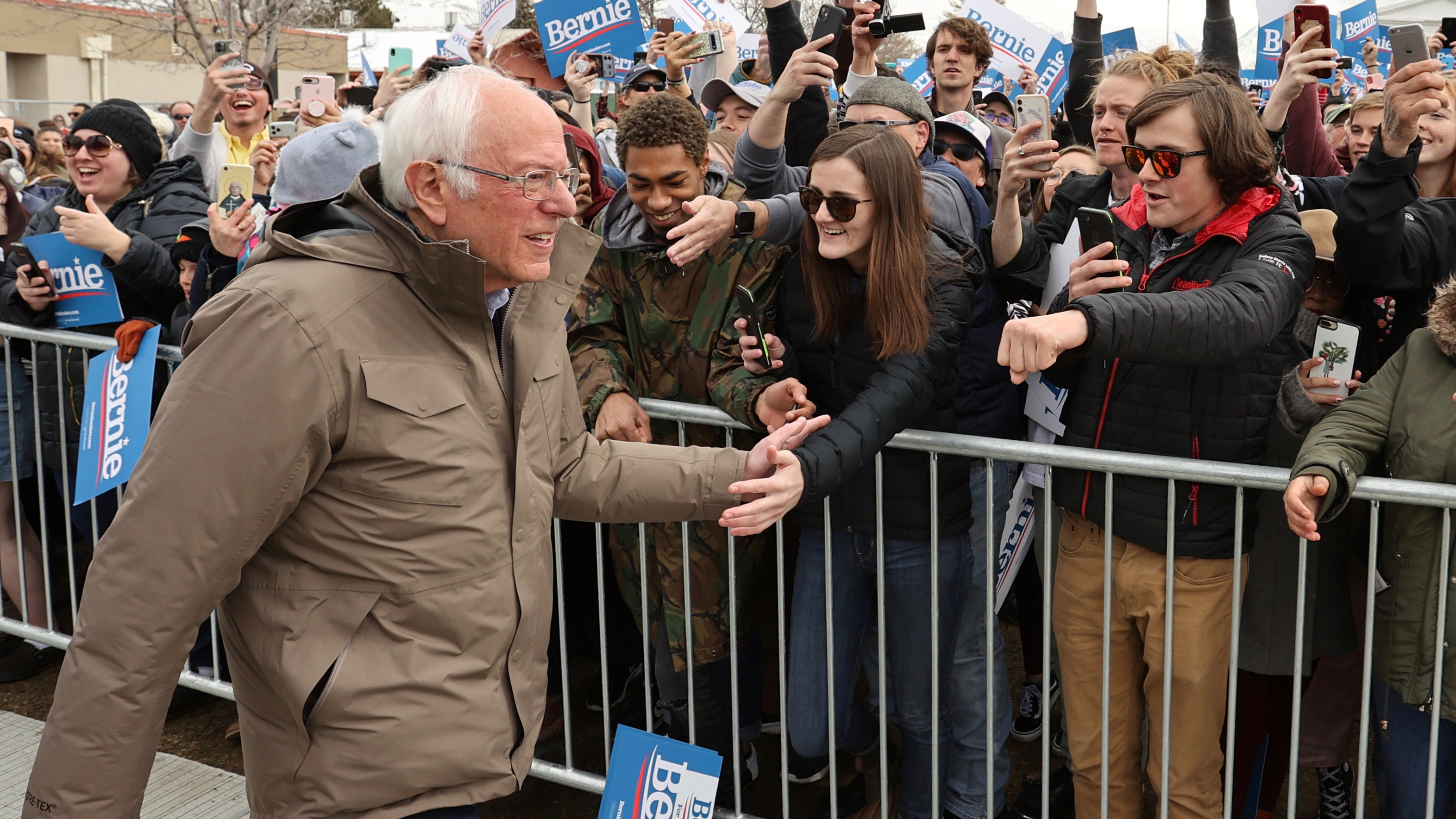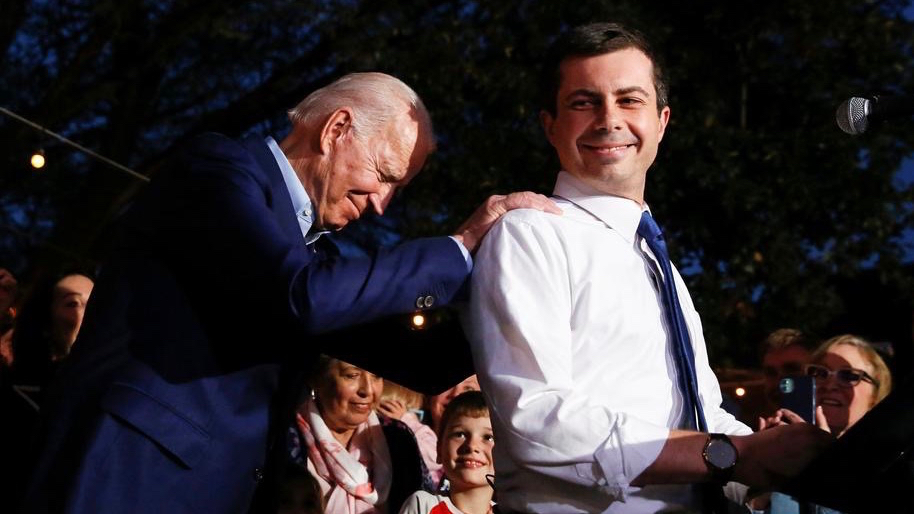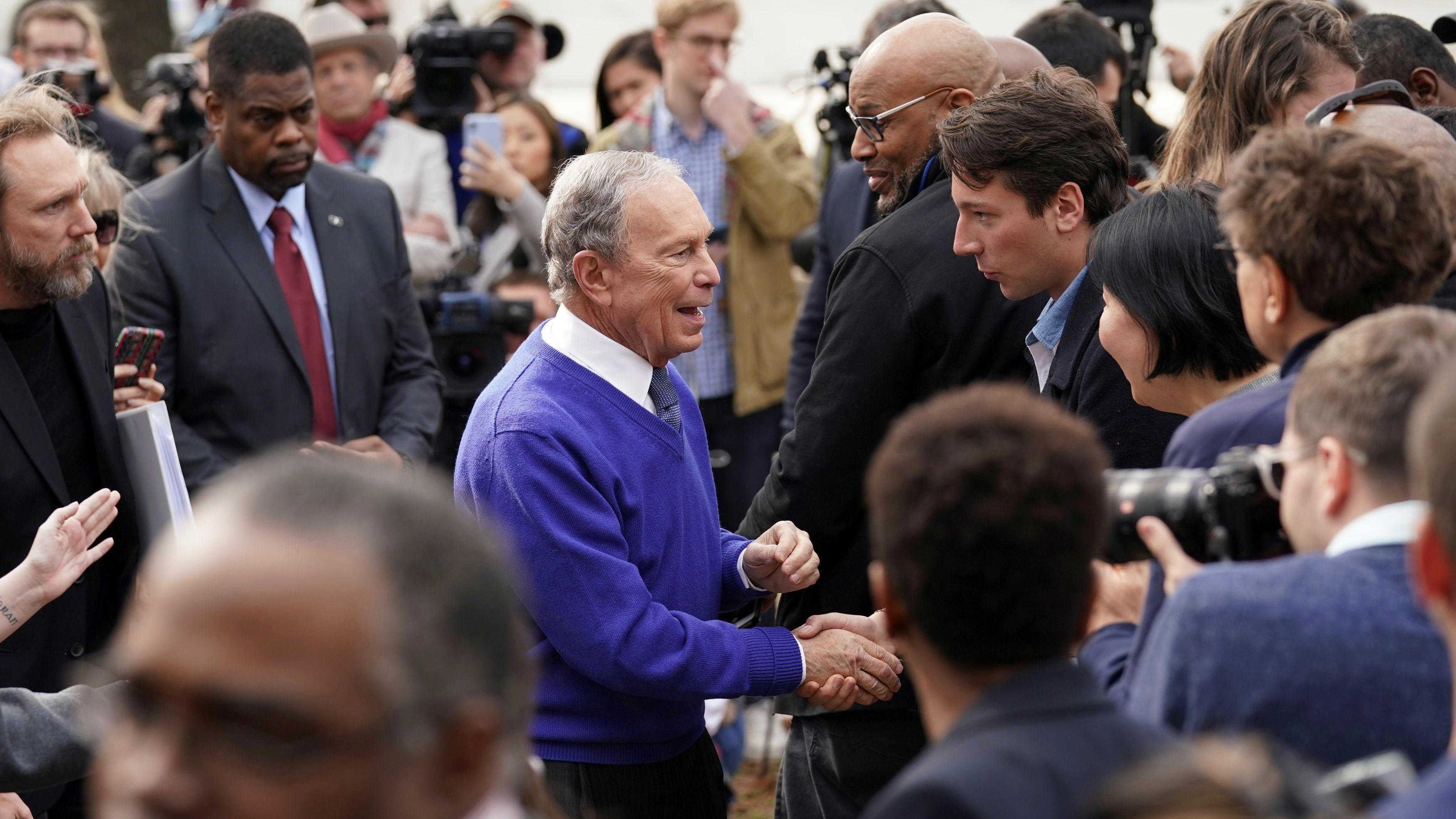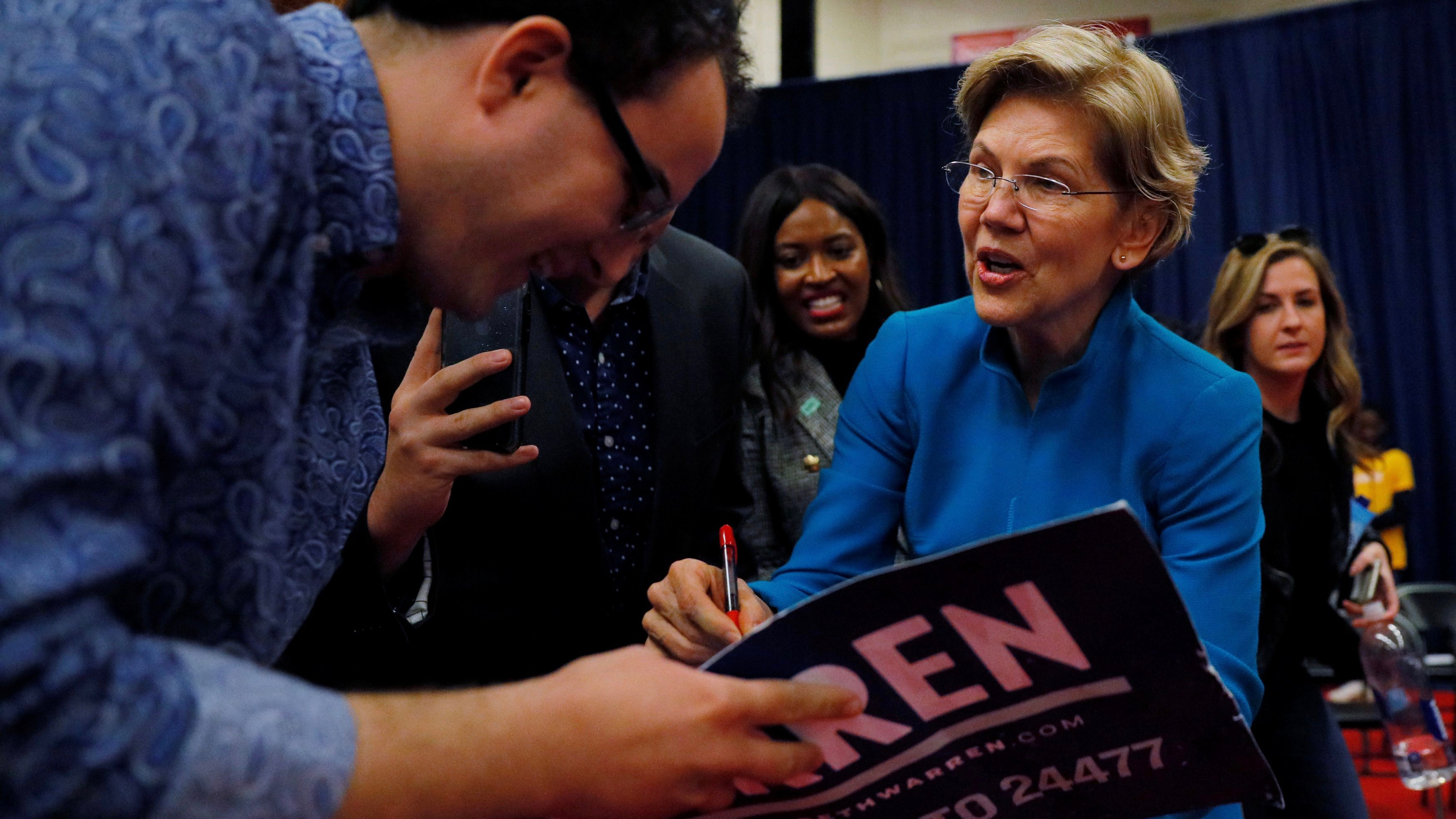Fourteen states, plus American Samoa and Democrats Abroad, are voting in the delegate-heavy extravaganza that is Super Tuesday, contests that could reshape the race to become the Democratic nominee to take on Donald Trump in November's presidential election.
Will Bernie Sanders surge into an unassailable lead? Can Joe Biden, boosted by a blowout win in South Carolina and the backing of former rivals, make the contest a two-horse race? Will Michael Bloomberg be a winner or a spoiler? Can Elizabeth Warren translate fundraising support into votes?
Here are six factors to watch as the results come in.
Why is 15 percent the magic number?
The Democratic candidates are currently competing for pledged delegates, different numbers of which are allocated to each state, determined by population and past Democratic performances (heavily Republican states have fewer delegates).

A South Carolina polling station, Denmark, South Carolina, U.S., February 29, 2020. /Reuters
A South Carolina polling station, Denmark, South Carolina, U.S., February 29, 2020. /Reuters
There are 3,979 pledged delegates in total, with 1,991 needed to win an outright majority and 1,357 up for grabs on Super Tuesday. Democrats allocate them proportionately – one of the reasons, allied with a crowded field, a contested convention in July is a real possibility.
Crucially, delegates only go to candidates who receive at least 15 percent of the vote – across the state for statewide delegates or within a congressional district for district-level delegates.
So, the first target in every state and district is to hit the 15 percent threshold – miss it, and the candidate will win no pledged delegates. Delegates are distributed proportionately between all candidates that meet or exceed 15 percent.

Bernie Sanders greets supporters, Salt Lake City, Utah, U.S., March 2, 2020. /Reuters
Bernie Sanders greets supporters, Salt Lake City, Utah, U.S., March 2, 2020. /Reuters
Will Sanders win big in California?
California has 415 delegates and is the biggest prize on Super Tuesday. Sanders is polling well ahead of the field in the Golden State and could secure a delegate windfall.
In The Spotlight: Bernie Sanders
The challenge for Biden, Bloomberg and Warren looks to be exceeding the 15 percent threshold and limiting the number of delegates – 271 of which are allocated by congressional district and 144 statewide – Sanders takes home.
Sanders is also looking competitive across the other 13 voting states, boosted by a high fundraising and a powerful ground game. But, he is likely to be challenged by Biden in the south and Warren in Massachusetts. In both his home state of Vermont and Utah, polls suggest he could win all available delegates.

Pete Buttigieg endorses Joe Biden at Chicken Scratch, Dallas, Texas, U.S., March 2, 2020. /Reuters
Pete Buttigieg endorses Joe Biden at Chicken Scratch, Dallas, Texas, U.S., March 2, 2020. /Reuters
Can Biden win Texas and the south?
Texas is the other delegate-rich state voting on Super Tuesday, with 228 delegates available in an open primary – meaning Republicans can also vote. The polls suggest that there is a three-way race for the top spot, with Bloomberg, once a Republican, using his wealth to flood the airwaves and sitting close behind Sanders and Biden.
Moderates look to Biden as rivals drop out
Biden will again be targeting African American support to do well in Texas and other southern states. The former vice president looks to have a good chance of winning in Alabama, while polls suggest Arkansas, North Carolina, Virginia, Oklahoma and Tennessee are toss-ups.
Biden's momentum since Saturday's win in South Carolina is likely to not be reflected in the polls, so he should outperform the latest surveys – especially if Buttigieg and Klobuchar backers support him – though he could be blunted by early voting that took place before his resurgence.

Michael Bloomberg greets volunteers, Manassas, Virginia, U.S., March 2, 2020. /Reuters
Michael Bloomberg greets volunteers, Manassas, Virginia, U.S., March 2, 2020. /Reuters
What will happen to Bloomberg?
Bloomberg entered the race with a Super Tuesday strategy: He stayed out of the first four nominating contests, which had relatively few delegates, and has spent around half a billion U.S. dollars advertising in states that could launch him as the alternative to Sanders.
In The Spotlight: Michael Bloomberg
But, a poor first debate performance burst the bubble of excitement around him and his rise in the polls has stalled. Biden, who Bloomberg hoped to essentially replace, has surged back into the race and moderate Democrats are consolidating around the former vice president.
There's a chance Bloomberg will pick up a surprise win and enough delegates to stay in the contest, but also a strong possibility he acts as a spoiler on Biden, thereby boosting Sanders, the very person the billionaire entered the race to stop.

Elizabeth Warren signs a campaign poster, Selma, Alabama, U.S., March 1, 2020. /Reuters
Elizabeth Warren signs a campaign poster, Selma, Alabama, U.S., March 1, 2020. /Reuters
Can Warren make a case?
Elizabeth Warren has had a strange race. At one point she was closing in on being the frontrunner, but since equivocating on her Medicare for All plan the progressive vote has consolidated around Sanders. The Massachusetts senator has tried to recast herself as a bridge candidate, who can attract support from both the moderate and Sanders wings of the party.
In The Spotlight: Elizabeth Warren
She has received plaudits for her debate performances and hauled in impressive fundraising totals, but the old maxim "stand in the middle of the road and get run over" looks to apply to her candidacy so far: Warren took eight delegates with a third-place finish in Iowa, but hasn't troubled the delegate scoreboard since.
She has said she is aiming to pick up as many delegates as possible to take to the Democratic convention in Milwaukee, hoping to be the beneficiary of a contested convention. But if she fails again with the voters on Tuesday, especially in Massachusetts where she is neck-and-neck with Sanders – can she really stay in the race?
Will new voters be mobilized?
Sanders' case for beating Trump is centered around the claim he can excite new voters, expanding the electorate particularly by getting more young people to the ballot box.
The moderate argument is, broadly, that a Biden-like figure can attract independents and Republicans who don't support Trump as well as the traditional Democratic base.
Either way, new voters will need to be mobilized if the Democrats are going to do well in November. In the first four voting states, turnout was mixed: Flat in Iowa but up in New Hampshire, Nevada and South Carolina.
Sanders' electability will be boosted if there is evidence of new voters going to polls on Super Tuesday. If not, there'll be further questions about his ability both to beat Trump and to help Democrats in down ballot contests.